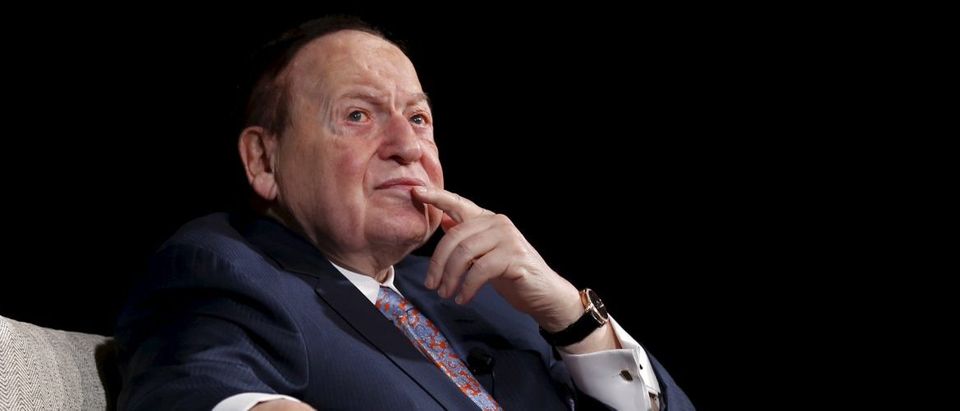In a meeting last week, Nevada Governor Brian Sandoval asked Attorney General Jeff Sessions to leave his state alone when it comes to regulating online gaming.
We don’t know the entire contents of that meeting, but Gov. Sandoval likely pointed out that Nevada and several other states are already effectively regulating online gaming. They are doing so on issues ranging from prevention of play by minors to geolocation to ID verification.
To use that old chestnut, this is a problem that ain’t broke, but the federal government is looking to fix it. Politicians, encouraged by deep-pocketed patrons such as casino magnate Sheldon Adelson who don’t appreciate the online competition, are pushing a deeply flawed, dishonest piece of legislation called the Restore America’s Wire Act (RAWA).
The legislation is flawed because it would lead to a crackdown of online gambling by Sessions and other law enforcement for no good reason. Americans by and large are OK with legal gambling as long as it is reasonably regulated. Online gambling hosted in states that allow it is hardly the Wild West.
That doesn’t stop RAWA’s sponsors such as outgoing Congressman Jason Chaffetz (R-Utah) from saying some frankly absurd things about gaming in America. For instance, he frets on his website that a decision by Justice Department “unleashes the potential for an unregulated gambling industry to be imposed nationwide,” when it is clear as the high noon sun that it’s done no such thing.
The legislation is dishonest beginning with the title. The Wire Act, passed way back in 1961, never applied to online gaming. In fact, Congress has passed up on multiple opportunities to apply it to online gaming in the way that RAWA backers seek to do now.
But that doesn’t stop the bill’s sponsors from trying to duck an argument by claiming a phony consensus. Chaffetz asserts that administrations “from both parties have held that the federal Wire Act bars Internet gambling.” He seeks to cement that impression by again asserting that this “position has enjoyed bipartisan support from the public, their representatives and from attorneys general of most states.”
Pardon my French but oh balderdash. The Wire Act, coming well before the Internet, needed to be updated to apply it to all online gambling. Congress refused to do so, many times. The Justice Department eventually realized it was on very shaky legal ground and so sensibly backed off.
As for bipartisan support, how’s this? The National Governors Association, representing all 50 of our state executives, Republican, Democrat and Independent, sent a letter to Attorney General Sessions asking the federal government to stay out of this issue.
The governors said they were “concerned with legislative or administrative actions that would ban online Internet gaming and Internet lottery sales.” They also reminded him of the importance of federalism and of the unintended consequences and online gambling ban could have.
“States are best equipped to regulate and enforce online gaming. A ban drives this activity offshore to unregulated jurisdictions, out of reach of state and federal law enforcement and with risk to consumers,” all of our state executives warned our highest law enforcement official.
David Williams is the President of the Taxpayers Protection Alliance.


